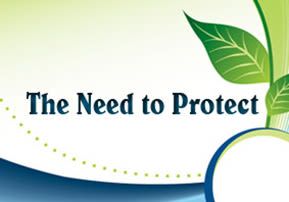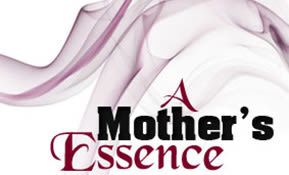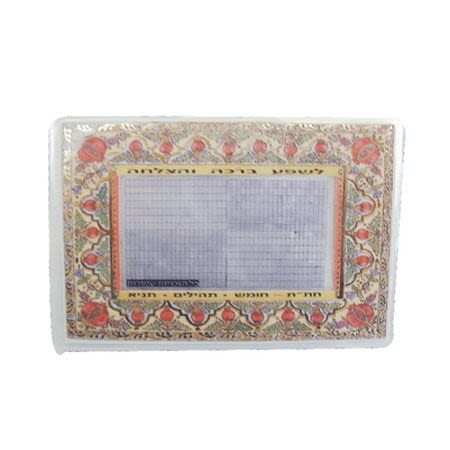
Matot: The Need to Protect
As much as a woman needs to be protected, a man needs to protect.

Parshat Matot
Parashat Matot teaches us that if a woman makes a vow, taking upon herself a particular stringency, her father may annul it and she will be no longer bound by it. “But if her father shall disallow her on the day that he hears, not any of her vows, or of her bonds, wherewith she has bound her soul, shall stand; and Hashem shall forgive her, because her father disallowed her” (Bamidbar, 30:6). When she marries, her husband is empowered to nullify her vow instead. “Every vow, and every binding oath to afflict the soul, her husband may establish it, or her.
SEEMINGLY CHAUVINISTIC LAWS
How do we explain the fact that a man can nullify a vow taken by his daughter or wife, whereas a woman cannot nullify the vow taken by her son or husband? On the surface level, it seems as though the Torah denigrates woman by regarding her as unable to take responsibility for her own decisions. Although we acknowledge the Divine source of all Torah laws, how can we, as mature liberated women accept laws which seem to limit the independence of women?
ETERNAL LAWS OF TORAH OUTWEIGH NORMS OF MODERN SOCIETY
Whenever Torah laws contradict what is socially acceptable in the “free” Western world, the eternal value of the Torah takes precedence over the ephemeral values of the Western world. However, there is a reason that Hashem causes certain perspectives to become more popular at certain times. Each wave of consciousness draws out another aspect contained within the depths of the wellsprings of Torah. Our need to affirm the importance of women in Judaism becomes an impetus for perceiving the Torah laws that seem to belittle women’s role in a deeper way.
ACHIEVING DIVINE FORGIVENESS
According to Torah law, any vow taken is binding, and cannot easily be dismissed. Today, therefore, it is the custom never to make any vow in case we accidentally should come to transgress it. The Kol Nidrei prayer on Yom Kippur comes to nullify any vows that we may not have fulfilled. Only then can we receive forgiveness for unfulfilled vows even if our inability to keep them was unintentional. “…and Hashem shall forgive her” (Bemidbar, 30:6), Rashi ponders why the woman needs forgiveness, when her vow has already been annulled. He explains that Scripture describes the case of a woman who vowed to become a Nazarite and whose father heard it and annulled it for her without her knowledge. Even though her vow was void, she thought it was still in effect. Therefore, she needed forgiveness when acting contrary to the vow she had taken upon herself. Rashi points out that by revoking the vow of the daughter or wife, she is able to merit forgiveness in case she should accidentally break it. His comment concludes with the following a fortiori, “If those whose vows have been annulled require forgiveness, how much more when someone transgresses vows which have not been annulled!” (Rashi, Bemidbar, 30:6).
FOR THE SAKE OF PROTECTING THE WOMAN
Although nullifying the woman’s vow takes away the punishment, should she be unable to fulfill it; this does not prevent her from carrying out what she has sworn. Let's say a woman takes upon herself to become a vegetarian. The ability to annul her vow does not give her husband the power to force her to eat meat. It only prevents her from being punished, should she accidentally come to eat meat. Moreover, not every vow can be nullified by her father or husband. Rabbi S. R. Hirsch explains that the right of the husband to annul her vow is limited to the vows through which the woman causes herself hardship and pain, or vows that pertain to their relationship. Thus, the ability to annul her vow serves as a protection for the woman. Rabbi Azriel Tauber makes the following analogy; the woman is like a diamond and the man like a ring. A ring without a diamond has very little value. A diamond, on the other hand, needs protection because of its great value.
WOMEN, SENSITIVITY AND SELF SACRIFICE
All generalizations have their exceptions. It is especially difficult in our evolving world, to describe prototypes of men and women. Nevertheless, the fact that men and women are created with physical differences alludes to their different emotional and spiritual makeup; since everything in the physical world is a reflection of the spiritual reality it manifests. Whereas it is generally easier for a man to be detached and objective, a woman's role as a nurturer of new life makes her more emotionally sensitive, enabling her to love and identify with others. In her selflessness and zeal to give, she might not always realize her own limits. A woman, could, therefore, easily come to take upon herself more than she can handle. Her husband's ability to annul her vow serves to prevent her altruistic nature from going overboard.
MEN HAVE A NEED TO PROTECT
As much as a woman needs to be protected; all the more, a man needs to protect. It is the moral strength of a woman which enables her to give her man a feeling of importance by seeking refuge under his protective shield. Men need to give; that is their basic nature. One of the most important things men have always given women is protection, and deep inside, every man wants to be his wife's "knight in shining armor."
In various circumstances, the primary role of the man is one of decision making whereas that of the woman is motivating and encouraging her man. In the overall picture, both are equally responsible for the final decisions, in the same way that both have an equal share in shaping the baby to which the woman gives birth.
(Rebbetzin Chana Bracha Siegelbaum is Director of Midreshet B’erot Bat Ayin in Gush Etzion. This article is an excerpt from her book Women at the Crossroads: A Woman’s Perspective on the Weekly Torah Portion. You can buy it in our online store here)












Tell us what you think!
Thank you for your comment!
It will be published after approval by the Editor.